Like events for adults, each type will require its own unique set of plans. Training, again, might be provided on-site, online, or a blend of strategies for the delivery of information. There are real benefits to online events as it often allows for students from a larger geographic area to participate. The desired outcomes of the event will determine details such as geographic reach, number of participants, student activities, the interaction between students and instructors, etc.
Logistics of planning a youth learner event are in many ways similar to adult learner events. Communication access, physical space, budgetary constraints, technology resources, and support will all need to be considered.
However, when working with younger learners, communication access, for example, may require a wider range of support. Will signed English and ASL need to be provided? Will teacher assistants be needed to help with instruction, vocabulary, and general comprehension? Will topics need to be taught using a range of methods to ensure understanding? This is even more of a challenge if working with a group of young learners who you are not familiar with and do not know how they best learn.
Event Formats
Event formats may include:
- Retreats and camps often are planned at a remote site such as a park, overnight camping area, or retreat setting designed for such events.
- These sites range greatly in price, resources, and services.
- They may also have constraints to consider, such as age restrictions, the number of people permitted, what can be brought on-site, such as food, staff, etc, and technology limitations.
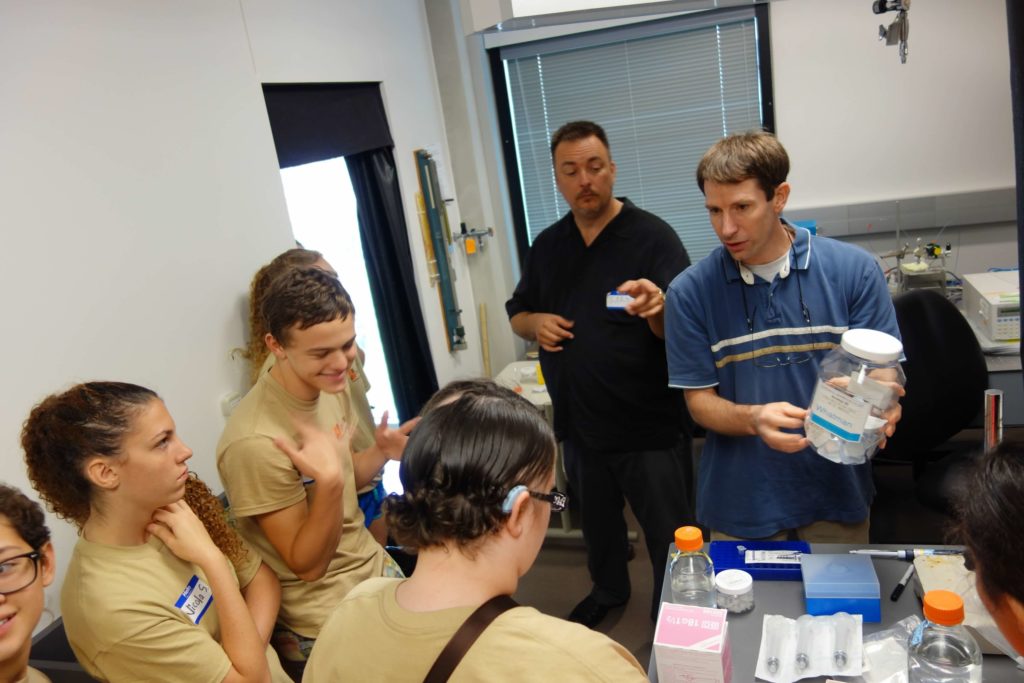
- Conversely, they can be a fantastic option if you identify a site designed specifically for your purpose that is “kid-friendly” and accustomed to working with schools, churches, and other groups that work with youth.
Duration
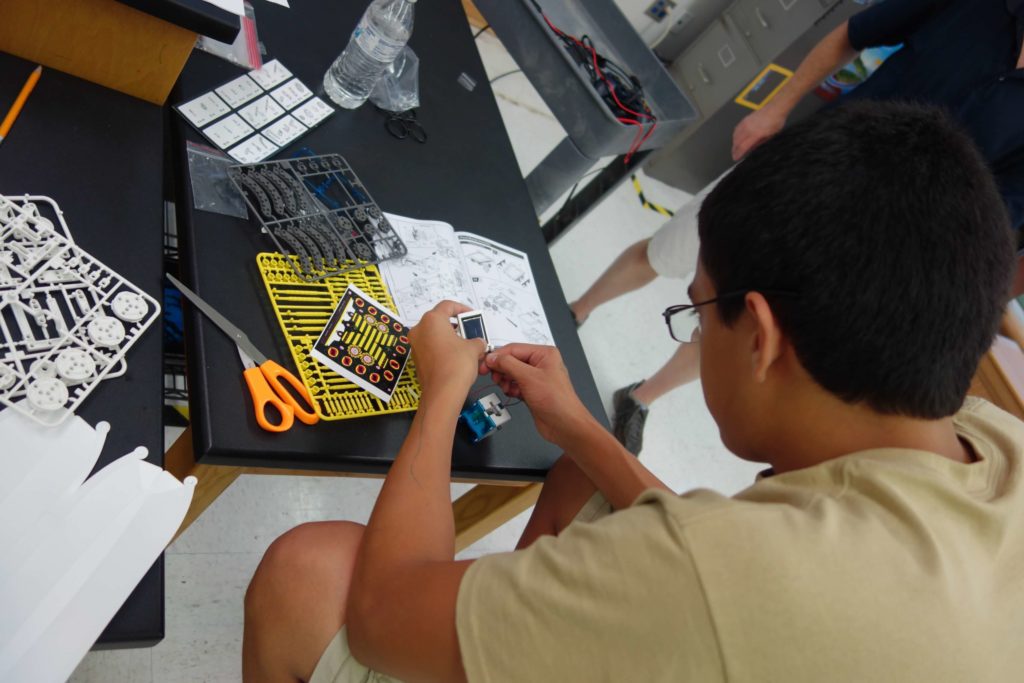
- Workshops can vary in duration from one hour or one day. Typically, you will want to decide what age range to work with or think about age groupings during instruction and consider the attention span of younger learners.
- Workshops can be less time-intensive in terms of planning, however, again, the devil is in the details and with younger learners, it is best to have every minute planned.
- Unlike adult learners who may benefit and prefer more time to work independently, you will want to plan for younger learners in a way that even break time or independent work time has adult oversight and guidance.
Parallel Training for Parents/Professionals
Parent/student information sessions often are very topic-specific and planned to encourage dialogue, interaction, and information sharing. Recognizing that you have both adult and young learners presents an opportunity for providing creative ways to ensure everyone is benefiting from the information provided and everyone is engaged.
Access
Logistics of planning a youth learner event are in many ways similar to adult learner events. Communication access, physical space, budgetary constraints, technology resources, and support will all need to be considered.
However, when working with younger learners, communication access, for example, may require a wider range of support. Will signed English and ASL need to be provided? Will teacher assistants be needed to help with instruction, vocabulary, and general comprehension? Will topics need to be taught using a range of methods to ensure understanding? This is even more of a challenge if working with a group of young learners who you are not familiar with and do not know how they best learn.
Permission Forms, Releases, and Other Pertinent Documentation
Permission forms/media releases/waivers-depending on what you are including in a youth event, any or all of the above documents will need to be completed by the parents or guardians of all minor children participating.
For example, if you have a water activity at the pool, permission for every student is critical. Do not make assumptions, and do not accept students’ words for what is permitted. There is no room for flexibility in this area.
Similarly, some parents are sensitive to photos taken of their child at an event and may want to know how they will be used prior to signing off on a release. Be prepared to explain to parents in detail what you are requesting and why before expecting a signed form in return.
On-Site Supports
Much of this pertains to students who are physically on-site but not at their home school. Perhaps you have provided a weekend camp experience at a retreat. The following support staff and services should be considered during the planning phase of this event.
Counselors: Students often come to an event and issues surface that require staff with the expertise to address the emotions, concerns, and feelings of young learners. Ideally, a counselor will be present to meet with students in need and this aspect of student need is not left to untrained staff.
Medical staff: Having medical staff available at an event is, of course, most important when you are hosting retreats or camps where you may not have readily available medical assistance should a student become ill.
Also, if you are planning an event in which students are in your care for several hours or overnight, medications may need to be dispensed. Ideally, you have medical staff to supervise this process. Allocating the funding for this is well worth it, given the peace of mind it provides and the additional level of safety preparedness it ensures.
Registration System/Participant Tracking
Student registration or application for an event may be as simple as a teacher signing up for a class as a group or as complex as requiring student interviews and references. If students will attend an event without parental supervision or without being accompanied by their home teacher, it is advisable to gather enough information that you believe the training is an appropriate venue for the student as well as you have a general idea of any special learning needs, food, medical, social or religious needs that might need to be addressed.
Designing a registration process that enables you to collect the degree of information needed is prudent. While time-intensive, requiring references from teachers or letters from parents can provide valuable information about a student’s ability to benefit from the training event.
One on one interviews with students can provide you with information that may be helpful, such as the students’ level of interest and enthusiasm for the event, how committed the student is to complete it, is the student comfortable being away from home (if off-site event), are there any learning needs to plan for, and what the student hopes to gain from the learning experience.
There are times when a student for any number of reasons is not a good match for a particular training event. Interviews with students prior to an event can help both you and the student determine if it will be a good match.
Refreshment/Meal Planning
As with adult events, there are a number of ways to provide food and refreshments for students. Using onsite food services may be the most efficient but may be very costly. If the site allows for food to be brought in, research costs for bringing in your own food preparers, cost of catering services, or even pick up or delivery of restaurant foods.
Young learners are also always hungry learners. Plan for lots of snacks and food breaks. Be sure to plan for food allergies, religious restrictions, etc, offering safe choices. Do not overlook religious restrictions. This can make the difference in whether a student is able to participate, especially if the training is scheduled during a special religious observance.
Transportation
Transportation is frequently an
important part of planning
a youth event.
You will need to decide early in the planning process whether you want students to plan for their own transport to the event or if you plan to provide transportation.
There are a number of ways to provide transportation. If funding permits, plane or bus tickets can be purchased for a student coming from a distance, reimbursements to parents for gas costs might be considered or renting buses or other vehicles for pick up may be an option.
In some cases, it may be appropriate for a school to host their students and provide the transportation to the event for them. This can be beneficial also as school staff who supervise the transport time could also remain on-site and provide supervision of students.
IT Support
There may be a variety of IT needs during a training event. Detailed checklists of what your technology needs will be for each portion of the event will help track and plan. This becomes much more critical if you are hosting a student event in a remote area where you will need to bring everything with you to the site rather than a workshop or class, for example, offered on a school campus where the technology needed is likely in place.
Questions to Ask:
– Are you going to need a laptop and screen for instructional time?
– Will each student need a laptop or iPad to participate in an activity?
– Will there be an activity planned involving robotics or technology which requires specialized equipment or sets of equipment for student use?
– What is the cost of the equipment?
– How far in advance does the equipment need to be ordered?
– Who will be responsible for the safe transport and care of the equipment to the site and during the event?
Student Engagement
Planning the event with a range of different instructional approaches and strategies in an effort to meet the different learning preferences of students should be an integral part of planning.
- Consider any communication preferences of students and check in frequently to be sure what is in place is effective.
- Are the students able to follow the interpreters being used?
- Are speech-to-text services on par and effective?
- Do students understand what you are saying and are able to follow and respond appropriately as needed?
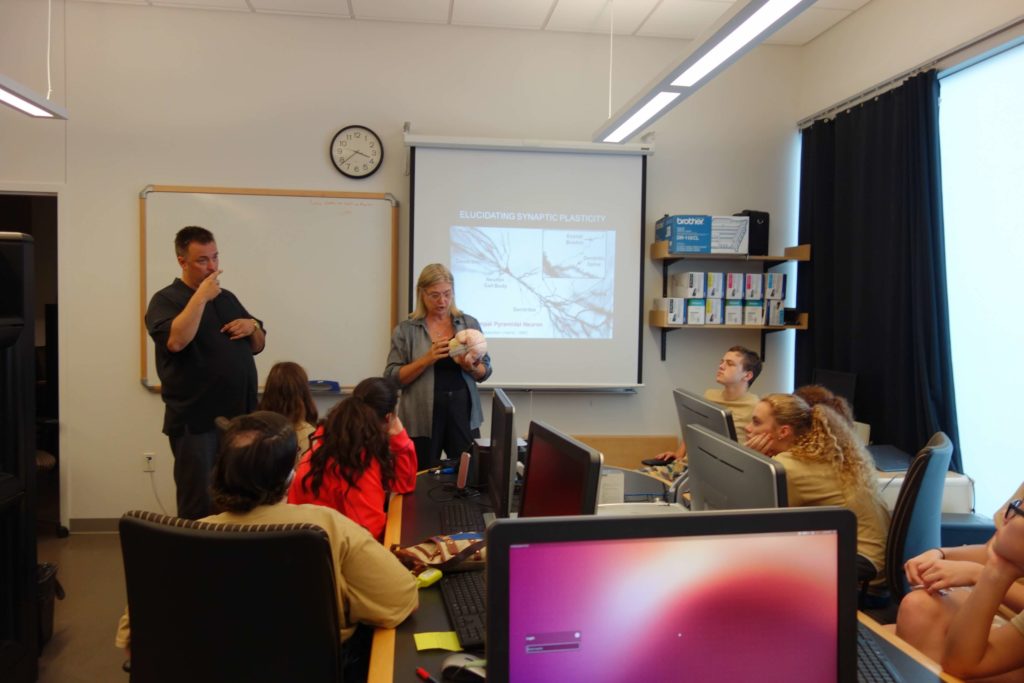
- How do you plan to encourage teamwork among students?
- Will there be any type of team-building activity incorporated into the day?
- How will you determine the grouping of students?
- Do you have a plan on how you will monitor groups to make sure they are effective and what to do if they are not going well? Also, being sensitive to any cultural or religious observances is important. For example, be aware if you have female students who are not allowed to interact with male students or come in contact with any males. What concessions can be made to ensure the female student remains involved, engaged, and included.
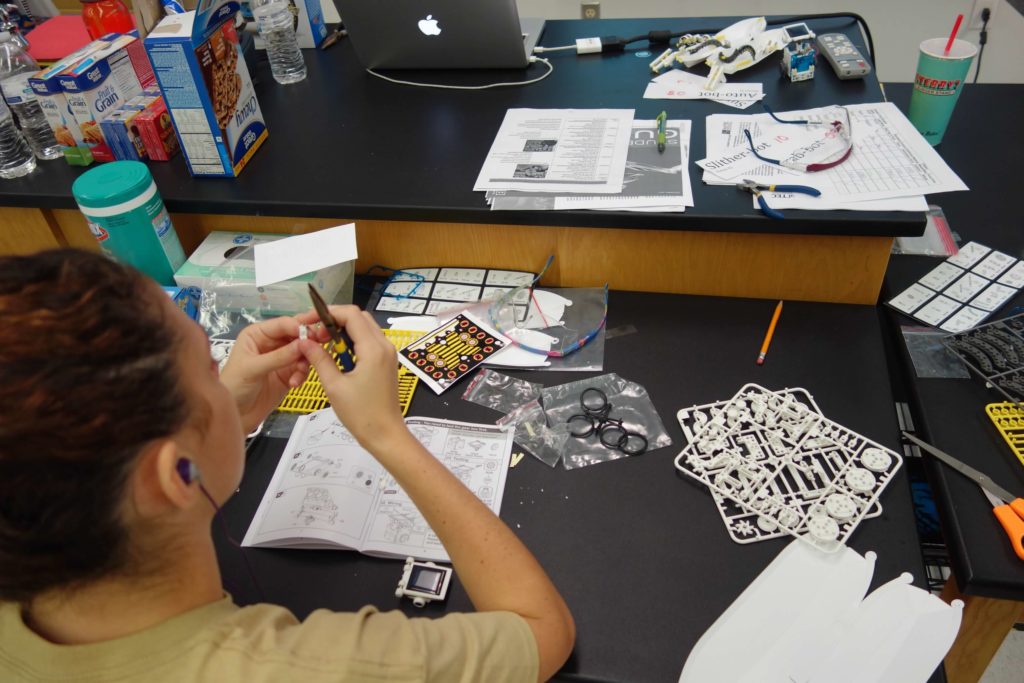
- Young learners will often challenge adults with behaviors that may not be desirable.
- What plan do you have in place to address behavior?
- Do you have strategies in mind for how you might redirect a student or help him become re-engaged in what is going on during the training?
- What plan is in place should a student require more supervision during training or behaves in a manner that requires removing him/her from the event?
- Is this a time to bring in the counselor you have on staff?
- Do you have a vehicle and driver if you had a need to take a student home?
- Do you have parent/guardian contact information readily at hand? Planning ahead for the “what if” kinds of scenarios ensures much smoother resolutions to them when they occur.
- If the duration of an event includes “downtime” for students, it may be wise to plan even for the unstructured time.
- How will they be supervised?
- How long will this time be and where will it be? Is it before bedtime?
- Perhaps planning something that slows and relaxes everyone before bed, such as snacks and a movie or a bonfire and storytelling is helpful.
- Perhaps planning something that slows and relaxes everyone before bed, such as snacks and a movie or a bonfire and storytelling is helpful.
Another need to consider for building in downtime or breaks are for those students with religious obligations. Will you need to create a prayer room or private location for prayer?
- When working with minor children, supervision is essential every minute they are in your care. This is amplified during non-instructional time.
- What is your plan for overnight supervision at a retreat site?
- How will you supervise during a field trip?
- What checks and balances are in place to ensure everyone has a fun and safe experience?
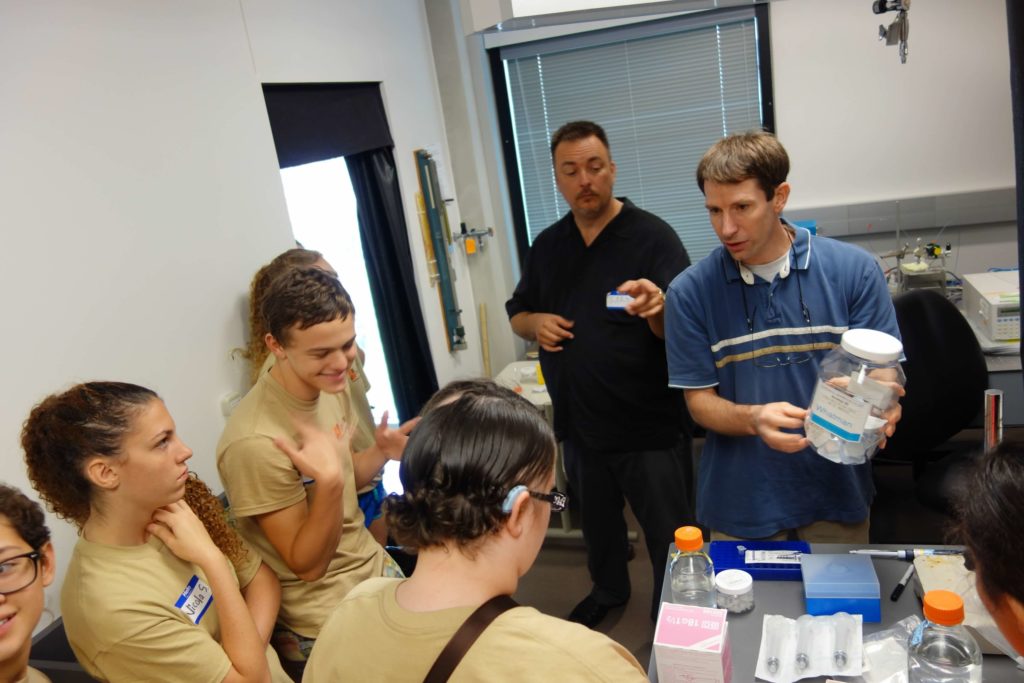
- Religious obligations can frequently become an issue that must be planned for when planning an event. Some female students may not be permitted to interact with male students or participate in activities that require less clothing, such as a swimming activity.
- Some male students may be required to adhere to strict prayer schedules if an activity is scheduled during Ramadan.
- Some students are unable to eat pork or any meat at all during a particular time. In an effort to be as inclusive as possible, all of these situations should be considered when planning.
- Use of reinforcers, prizes, and goody bags-regardless of age, everyone enjoys receiving prizes and surprises. Even the smallest of reinforcers, such as candy or stickers can serve to encourage learning. With young learners, consider incorporating this into instruction often throughout training as a means of encouragement. A word of praise, recognition for achievement-there are many positive strategies for maintaining young learner engagement.
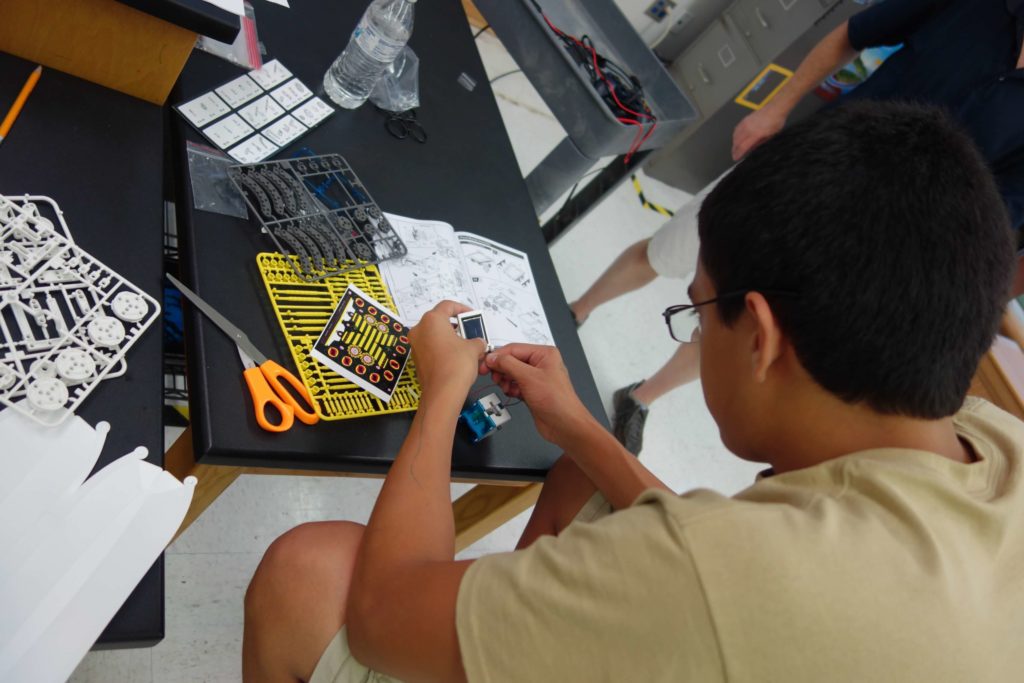
- It is unlikely that there will ever be another event with young students in which the presence of individual phones does not play a huge role.
- How will you address this during an event? If you are going to ask students not to use their phones, it may be wise to inform them in advance of the expectation that all phones be put away.
- You certainly want to avoid having to engage in debate over phone use because there was not a plan in place for how to address it.
- Communication with parents, guardians and/or teachers-depending on the nature of the training, and consideration of how you will communicate with students’ parents or teachers may be needed.
- Is this a multiple-day event where a daily call or text to parents is appropriate?
- Is this training that will be continued or built upon back at school and a summary of the student’s performance is needed?
- Perhaps the training is funded by a vocational rehabilitation counselor and the counselor needs a follow-up report on student attendance and progress.
Planning for communication of this kind in advance and informing adults that this will be provided in advance will be greatly appreciated.


